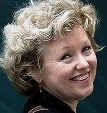Sunday, February 3, 2013
On the Nature of Truth in Nonfiction Writing
By Caitlin O’Connell
I’m sitting in rural Georgia right now looking out over a small finger of the twenty-four square mile Lake Sinclair, with a niggling feeling at the back of my mind relating to the nature of truth in nonfiction storytelling. This issue is so irksome that I can barely enjoy watching to two Great Blue Herons fumble past on the best wings they can muster, something having startled them from the trees, sending their all-legs-and-wings stature scrambling aloft the glassy pink water at sunset.
I keep asking myself (and other writers) how it could be considered OK to call a work “nonfiction” when an author uses some true event or person as a construct to structure their fictionalized story around. If the line between truth and fiction is arbitrary—left up to the writer’s discretion—then what? Buyer beware? I work really hard to keep the truth in place in my nonfiction writing, while still trying to tell a rich story. I had always taken the word “creative” in the term “creative nonfiction” to mean using the tools of fiction to create an engaging (and true) narrative.
I won a national award for one of my nonfiction books last year and at the award ceremony this discussion came up and I left the conversation very conflicted. And I’ve been conflicted over differing perspectives on the nature of truth ever since. Because I’m teaching a writing course at Georgia College called It’s All In The Telling (as a Newel Visiting Distinguished Scholar), I’m trying to formulate my angst into a lecture on the topic. Hence, why I can’t enjoy the blue herons until the matter is settled in my mind.
There is talk of the idea of compressed time in creative nonfiction, where elements of the story are best served by combining time elements or even characters. Sure, one can compress certain time elements for effect, whether something happened just yesterday or some days ago, but when you combine different characters for effect or compress time to the point of no longer representing the truth of a situation, but serving as a convenient dramatization, in my humble opinion, that’s a whole different story—a fictional story. In my personal handbook for truth-telling in nonfiction, any minor tweaking of time cannot alter the underlying facts. But this is a bone of contention in the nonfiction world.
For example, although I loved the book, THE PERFECT STORM, it was a fictionalized account of what may have happened on the Andrea Gail as no one lived to tell about it. But the book was billed as nonfiction and did extremely well (as a disclaimer, I thought the book was genius—just couldn’t possibly be the “truth” entirely and thus I would call it historical fiction, or perhaps what the tv programmers are calling factual drama??).
This brings me to my thought experiment. My husband and I have been having some fun involving “time-compression photography” and I’m using the result here to illustrate my point. Take this example of real events. Consider this unaltered photograph of my brother just before New Year’s while jumping in the water for a cool down between the island of Maui and Lanai.
Next, let’s focus our attention on the photograph of the visitor that swam by just minutes later, only my brother was not in the shot with this beautiful humpback whale.
Now what happens if we compress time? My brother was under water in this very geo-location some ways off of Lahaina at a good depth, while turning around to give me the local Hawaiian hello (shaka) with both hands. And this whale was also almost in this very spot less than five minutes later. If we compile two truths, overlay them on top of one another—then voila, my brother is a whale rider! Amazing, right? Do we care that he did or didn’t ride the whale just as long we were entertained?
Is this next time compressed image a more acceptable shade of grey?
At what point do legitimate realities get compressed such that they are no longer true? Do we care? Does the audience have the right to a truth-suspension disclaimer? Sure, this time-compressed image is definitely entertaining….but can’t the truth also be entertaining? If one can’t find a way to make the truth entertaining, then why not just call it fiction?
This is also a hotly debated topic in nonfiction tv programming these days and some don’t see my complaints as problematic or an attack on the integrity of nonfiction programming—just a reality of a changing industry.
Check out this panel on the wildly successful Hatfield & McCoy series on the History Channel that took place last Monday at ReelScreen for more details on the controversy:
http://summit.realscreen.com/2013/sessions/65472/factualdramafusingfact/#.UQnVtPLKe34
Subscribe to:
Post Comments (Atom)












0 comments:
Post a Comment